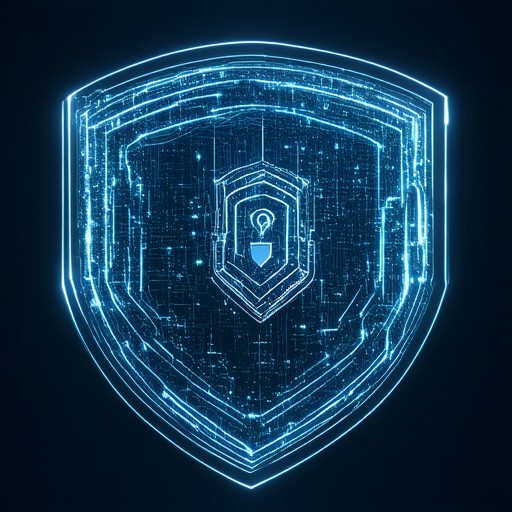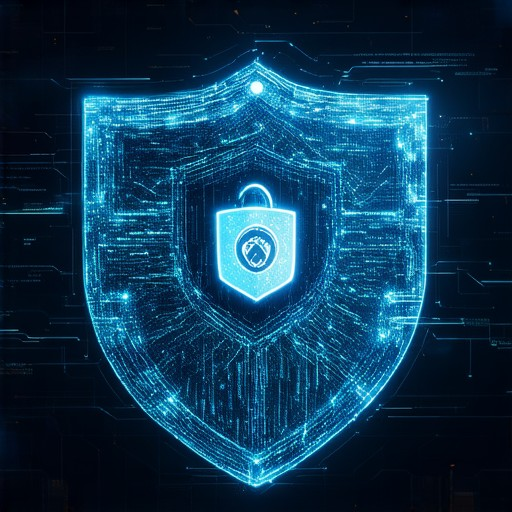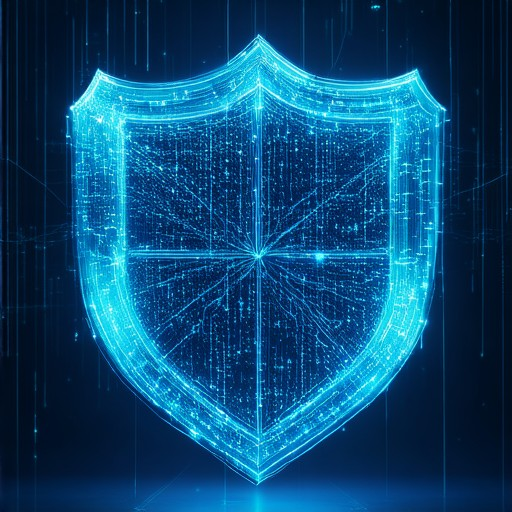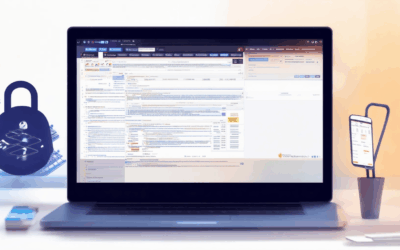In today’s digital age, internet security for professionals has become paramount, with evolving threats requiring sophisticated solutions. Whether you’re a finance professional managing sensitive data or a tech expert safeguarding critical systems, staying ahead of cyber risks is non-negotiable. This comprehensive guide delves into the top internet security solutions designed specifically for professionals, offering insights, rankings, and expert recommendations to help you fortify your digital defenses. From best practices for businesses to alternatives to popular tools like McAfee, this article covers everything you need to protect your online presence effectively. Discover the best options for securing your internet, home office, and professional environment, and explore the growing demand for skilled cybersecurity professionals worldwide. Stay informed and proactive with our detailed analysis of the latest trends and tools in internet security.
Key Takeaways
– Enhance Your Home Office Security: Protect your home office with essential tools like antivirus software, firewalls, and encrypted data to safeguard against malware and unauthorized access.
– Professional Monitoring is Key: Invest in security systems with 24/7 monitoring and advanced access control to ensure rapid response to threats.
– Stay Ahead with Regular Updates: Always keep your software and devices updated to protect against the latest vulnerabilities.
– Choose the Right Tools: Opt for trusted brands like ADT Pulse, Vivint Smart Home Security, or Ring Alarm Pro for comprehensive home security solutions.
– Compare Antivirus Options: Between Norton and McAfee, choose based on your needs—Norton excels in ease of use, while McAfee offers superior threat detection.
These insights help professionals create a robust cybersecurity framework tailored to their specific requirements.

What is the best business Internet Security?
The best business internet security solution combines robust features, ease of use, and comprehensive coverage to protect your operations from evolving cyber threats. Here’s a breakdown of key components and our top recommendations:
- Network Security: Ensure your internet connection is encrypted and protected with strong firewall policies and VPN solutions. Tools like BlindBrowser offer advanced encryption to safeguard your data transmission.
- Endpoint Protection: Protect all devices connected to your network with antivirus software. Brands like Norton and Bitdefender provide comprehensive solutions for businesses.
- Multi-Factor Authentication (MFA): Add an extra layer of security by requiring users to verify their identity through multiple methods, such as a PIN, password, and SMS verification. This significantly reduces unauthorized access risks.
- Encryption: Use HTTPS for all internal communications and encrypt sensitive data stored both on-premises and in the cloud. Tools like BlindBrowser support end-to-end encryption for secure communication channels.
- Monitoring and Alerts: Implement continuous monitoring systems to detect and respond to potential breaches. Services like McAfee Business Protection offer real-time threat detection and alerts.
- Regular Updates: Ensure all software, applications, and systems are regularly updated to patch vulnerabilities. This is crucial for staying ahead of emerging threats and maintaining a secure environment.
For a holistic approach, consider combining these tools with platforms like BlindBrowser that offer comprehensive security frameworks tailored for businesses. By integrating these strategies, you can create a resilient cybersecurity posture that adapts to modern challenges.
What Should I Use Instead of McAfee?
Here are some excellent alternatives to McAfee that offer robust security features:
- Norton Antivirus
- Known for its reliability and extensive protection against various threats.
- Offers features like virus scanning, malware removal, and device security.
- Provides a user-friendly interface and multiple device support.
-
Kaspersky Anti-Virus
- Renowned for its advanced threat detection and prevention capabilities.
- Available in different versions catering to personal and family use.
- Includes features like anti-phishing and web protection.
-
Bitdefender Antivirus
- Offers both free and premium versions, with the free version being particularly strong.
- Features include real-time protection, file encryption, and a family plan for multi-device coverage.
-
Avast Free Antivirus
- A popular choice due to its efficient and lightweight design.
- Provides essential security features along with optional premium upgrades for added benefits like password management.
-
Malwarebytes
- Specializes in malware removal and offers premium plans with additional features.
- Suitable as a secondary tool or backup solution for antivirus needs.
-
Sophos Home Premium
- Includes advanced features like ransomware protection and a built-in VPN.
- Comprehensive security solution for home users seeking extra layers of protection.
-
Trend Micro Antivirus+
- Offers a feature-rich package including a firewall and multi-device protection.
- Suitable for users needing enhanced network security alongside traditional antivirus functions.
Each of these alternatives provides unique features and caters to different preferences, ensuring you can find a solution that best fits your needs.

What is the best security for your internet?
Securing your internet connection and personal information is crucial in today’s digital age. Here are some essential steps to ensure your internet remains safe:
1. Use a Reliable VPN
A Virtual Private Network (VPN) is one of the most effective ways to enhance your online security. A VPN creates a secure tunnel between your device and the internet, masking your IP address and encrypting your data. This is particularly useful if you frequently access public Wi-Fi or want to protect your privacy while browsing.
Learn more about our VPN services .
2. Implement Strong Passwords
One of the simplest yet most critical security measures is using strong, unique passwords for every account. Avoid reusing passwords across multiple platforms, as this can leave you vulnerable to breaches. Consider using a password manager to generate and store complex passwords securely.
3. Enable Two-Factor Authentication (2FA)
Two-Factor Authentication adds an extra layer of security beyond just your password. Enable 2FA for your email, social media accounts, and financial institutions to protect against unauthorized access, even if someone knows your password.
4. Regularly Update Software and Devices
Security vulnerabilities can expose your devices and networks to threats. Regularly update your operating systems, applications, and firmware to patch these vulnerabilities and stay protected against the latest cyber threats.
5. Install Antivirus Software
Antivirus programs help detect and remove malicious software, such as viruses, malware, and ransomware, from your devices. Ensure your antivirus software is updated to recognize the latest threats.
6. Encrypt Your Connections
Encrypt your internet traffic whenever possible. This includes using HTTPS for websites, which ensures data is encrypted during transmission. Look for the padlock icon in your browser to verify secure connections.
7. Practice Safe Browsing Habits
Be cautious about clicking on suspicious links or downloading files from unknown sources. Stick to trusted websites and avoid sharing personal information in public forums or messages.
8. Monitor Your Online Activity
Regularly review your online accounts for any unusual activity or changes. Check your bank statements, credit card bills, and email accounts for signs of fraud or unauthorized transactions.
9. Use Encrypted Communication Tools
Protect sensitive conversations with friends, family, or colleagues using encrypted messaging apps. These tools ensure your communications remain private and secure from prying eyes.
10. Educate Yourself and Others
Stay informed about the latest cybersecurity threats and protection methods. Educate your loved ones about online safety to help them stay protected too.
By following these steps, you can significantly enhance your internet security and safeguard your personal information. Remember, staying vigilant and proactive is key to protecting yourself online.

Best Cybersecurity for Home Office
Securing your home office requires a multi-layered approach to protect against various threats. Here’s a breakdown of essential cybersecurity measures and recommendations:
Key Components of Home Office Cybersecurity
- Antivirus Software : Essential for protecting against malware, viruses, and ransomware. Look for solutions that offer real-time protection and scanning.
- Firewall : Acts as a barrier between your home network and external threats. A hardware firewall is recommended for added security.
- Encryption : Secure sensitive data stored on local devices and cloud storage using strong encryption methods.
- Network Security : Ensure your Wi-Fi uses WPA3 or WPA2 encryption standards to prevent unauthorized access.
- Password Management : Use a reliable password manager to create and store complex passwords for all your accounts.
- Regular Updates : Keep all software, operating systems, and devices updated to patch vulnerabilities.
Recommended Brands and Tools
BlindBrowser recommends the following cybersecurity tools for home office use:
- Antivirus Software : Explore top-rated options that suit your needs .
- Firewall Solutions : Consider adding a reliable firewall to your setup. Learn more about configuring and choosing the right one .
- Encryption Tools : Use tools like these encrypted communication platforms for secure data transfer.
- Network Security : Optimize your Wi-Fi settings with these security tips .
Why These Recommendations?
These tools and practices are selected for their effectiveness, ease of use, and compatibility with modern home office environments. They provide comprehensive protection against common threats while staying user-friendly.
Stay Proactive
Cybersecurity isn’t just about installing software—it’s about ongoing vigilance. Regularly monitor your networks, update your systems, and educate yourself and others about best practices. BlindBrowser offers resources to help you stay informed and protected.
What is the best professional home security system?
Choosing the best professional home security system involves evaluating features, reliability, and integration capabilities. Here’s a breakdown of key considerations and top options:
- Professional Monitoring: A top-tier security system often includes 24/7 professional monitoring services, which provide real-time alerts and rapid response to emergencies.
- Access Control: Look for systems with advanced access control, such as biometric locks, multi-layered authentication, and remote access via mobile apps.
- Home Automation Integration: The best systems integrate with smart home devices, allowing you to control lighting, thermostats, and other systems through a single platform.
- Security Cameras: High-definition cameras with night vision and motion detection are essential for monitoring your property.
- Alarm Systems: Select systems with dual-sensor alarms, smoke detectors, and carbon monoxide detectors for comprehensive protection.
Top Professional Home Security Systems
1. ADT Pulse
ADT Pulse offers a fully integrated security system with professional monitoring, smart home automation, and customizable packages. Their advanced technology ensures reliable protection and easy management through a mobile app.
2. Vivint Smart Home Security
Vivint combines high-end security features with energy-efficient smart home solutions. Their system includes intelligent door locks, motion sensors, and round-the-clock monitoring, making it a strong contender for modern households.
3. Ring Alarm Pro
Ring Alarm Pro stands out for its affordability and robust features. It includes optional professional monitoring, HD cameras, and a user-friendly app for remote control. While it may lack some premium features, it’s a cost-effective option for many users.
4. Nest Secure
Nest Secure integrates seamlessly with Nest’s smart home ecosystem, offering a sleek, intuitive interface. It includes motion sensors, smoke detectors, and optional professional monitoring, appealing to users already invested in the Nest brand.
5. SimpliSafe
SimpliSafe provides a customizable security solution with no long-term contracts. Their systems feature advanced equipment, including high-definition cameras and multiple entry-point sensors, backed by 24/7 monitoring.
When selecting the best professional home security system, consider your lifestyle, budget, and integration needs. Each option offers unique benefits, so evaluate them based on your specific requirements and preferences.

Norton vs. McAfee: Which Antivirus Software is Better?
When deciding between Norton and McAfee, it’s essential to evaluate their features, pricing, performance, and customer support to determine which suits your needs best.
Features
- Norton: Offers a robust “Smart Firewall” for enhanced malware and phishing protection. Includes Norton Family, which provides comprehensive monitoring and control over children’s online activities. Known for its user-friendly interface.
- McAfee: Renowned for its advanced virus detection with McAfee VirusScan Plus. Provides extensive coverage and family protection features. However, it may consume more system resources, potentially affecting performance.
Pricing
- Norton: Offers competitive pricing plans with options tailored for different needs. Free trial available for hands-on evaluation.
- McAfee: Generally cost-effective, often offering discounts for multi-device subscriptions. Free trial provided to assess the service.
Performance
- Norton: Lightweight and efficient, ensuring minimal impact on system performance.
- McAfee: While effective, it may slow down computers due to high resource usage.
Customer Support
- Norton: Provides reliable 24/7 customer support, enhancing user convenience.
- McAfee: Offers round-the-clock assistance but may require more effort to reach support representatives.
Compatibility and Extra Features
- Norton: Compatible with multiple OS and devices, though primarily focused on PC protection.
- McAfee: Extensive cross-platform protection, covering more devices under one subscription.
- Extra Features: Norton includes a password manager, while McAfee offers identity theft protection.
Conclusion
Both Norton and McAfee excel in different areas. Norton excels in ease of use and parental controls, making it ideal for families. McAfee, with its advanced threat detection, is better suited for users prioritizing comprehensive security. Choose based on your specific needs and preferences.




